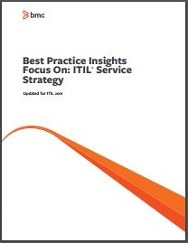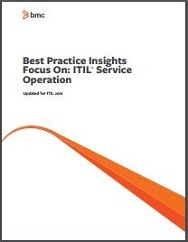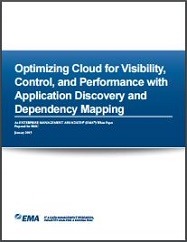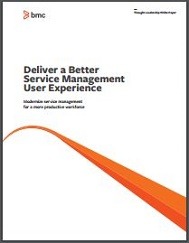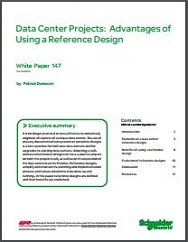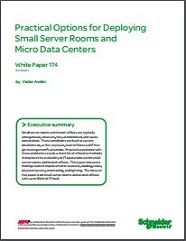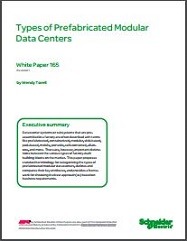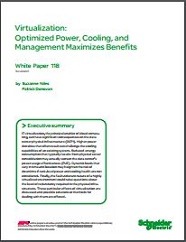ITIL® has emerged as one of the best-known and widely practiced approaches for IT Service Management (ITSM). ITIL v3 established a set of five core principles that help IT organizations deliver and manage IT services to the business – Service Strategy, Service Design, Service Transition, Service Operation, and Continual improvement.
This guide provides a primer on the essentials of the Service Strategy framework and highlights the key eleme...
You Are Browsing ‘General IT ’ Category
ITIL® has emerged as one of the best-known and widely practiced approaches for IT Service Management (ITSM). ITIL v3 established a set of five core principles that help IT organizations deliver and manage IT services to the business – Service Strategy, Service Design, Service Transition, Service Operation, and Continual improvement.
This guide provides a primer on the essentials of the Service Operation framework and highlights the key el...
Complex hybrid environments can make it difficult to track interdependencies, increasing the risk of disrupting critical business services. In this white paper by EMA, you'll learn how application discovery and dependency mapping can help you:
• Meet granular targets for availability, cost, and time-to-revenue for cloud services
• Accelerate mean time to repair (MTTR) while communicating better with stakeholders
• Manage even th...
The role of enterprise service management technology has changed. For many years the focus has been on improving IT efficiency through process automation and industrialized IT. While this approach has many benefits, it doesn't go far enough to address the needs of the modern digital business. User experience and productivity are the new measures of success.
This white paper explores the three key elements for modernizing service management through ...
It is no longer practical or cost-effective to completely engineer all aspects of a unique data center. Re-use of proven, documented subsystems or complete designs is a best practice for both new data centers and for upgrades to existing data centers. Adopting a well-conceived reference design can have a positive impact on both the project itself, as well as on the operation of the data center over its lifetime. Reference designs simplify and shorten ...
Small server rooms and branch offices are typically unorganized, unsecure, hot, unmonitored, and space constrained. These conditions can lead to system downtime or, at the very least, lead to “close calls†that get management’s attention. Practical experience with these problems reveals a short list of effective methods to improve the availability of IT operations within small server rooms and branch offices. This paper discusses ma...
Data center systems or subsystems that are pre-assembled in a factory are often described with terms like prefabricated, containerized, modular, skid-based, pod-based, mobile, portable, self-contained, all-in-one, and more. There are, however, important distinctions between the various types of factory-built building blocks on the market. This paper proposes standard terminology for categorizing the types of prefabricated modular data centers, defines...
IT virtualization, the engine behind cloud computing, can have significant consequences on the data center physical infrastructure (DCPI). Higher power densities that often result can challenge the cooling capabilities of an existing system. Reduced overall energy consumption that typically results from physical server consolidation may actually worsen the data center's power usage effectiveness (PUE). Dynamic loads that vary in time and location may ...

